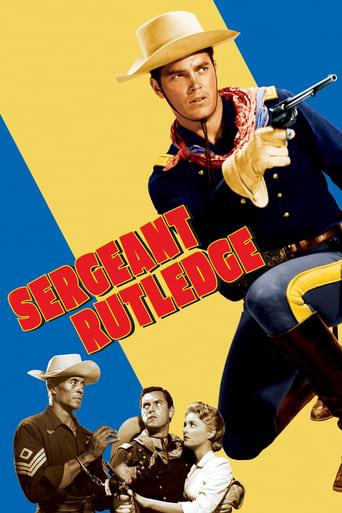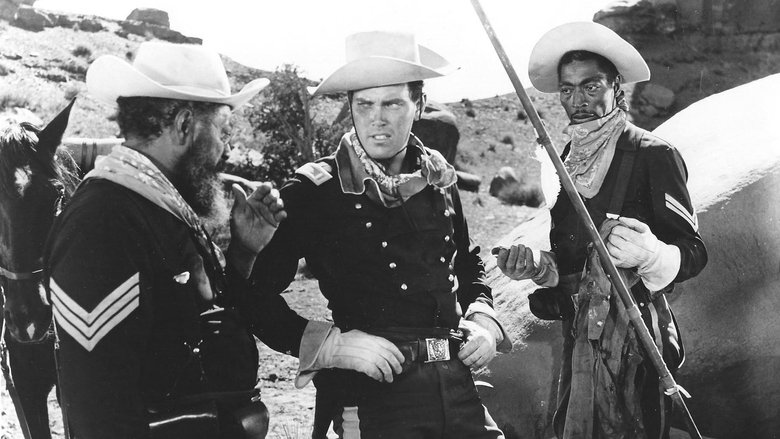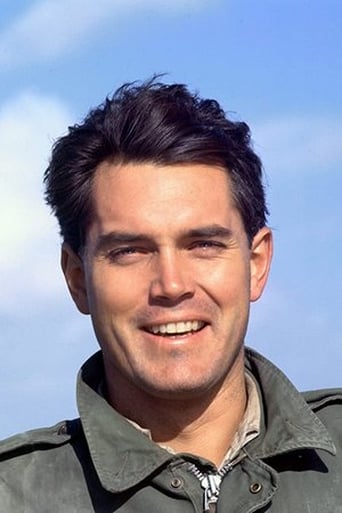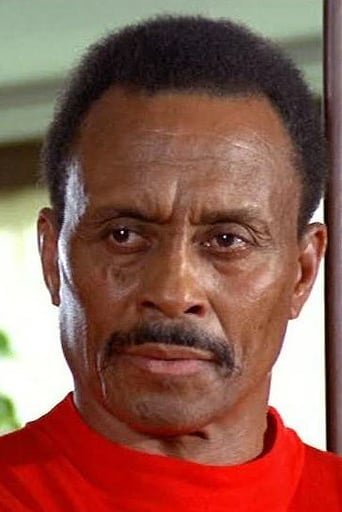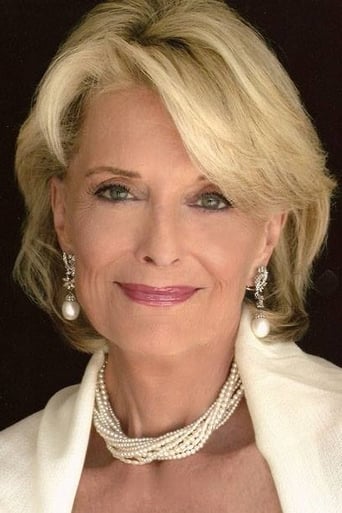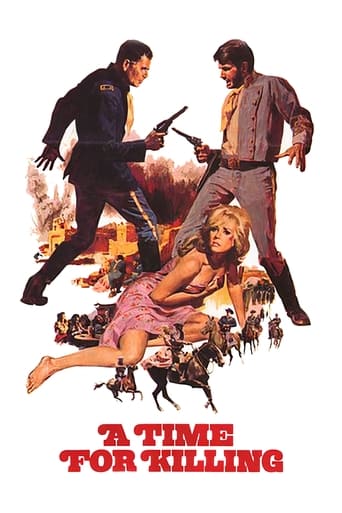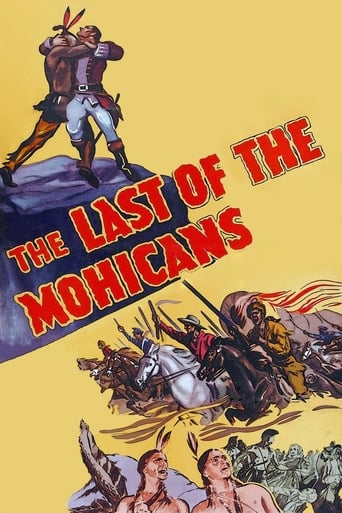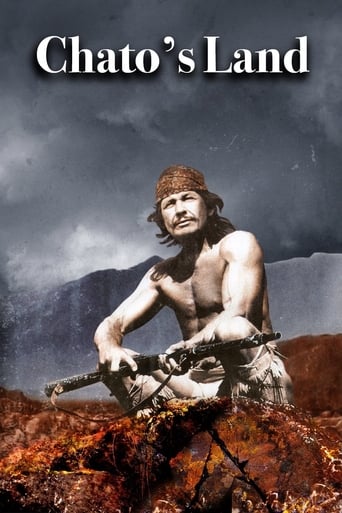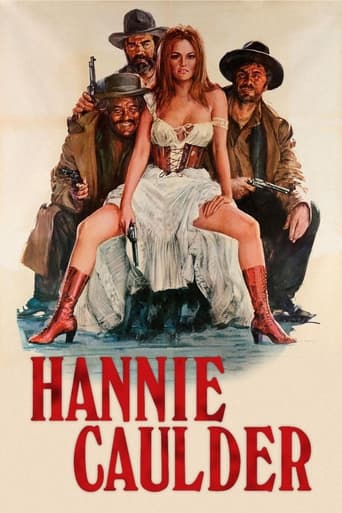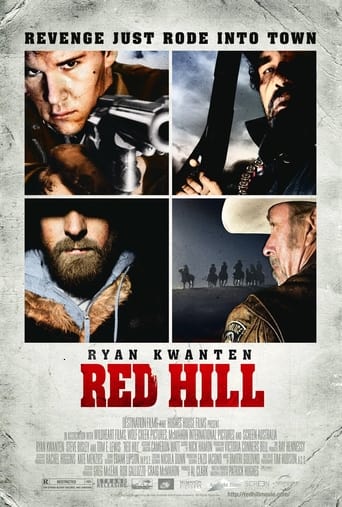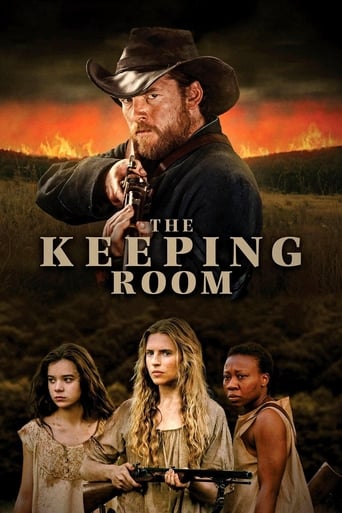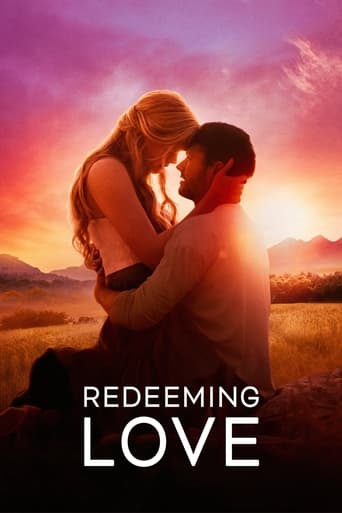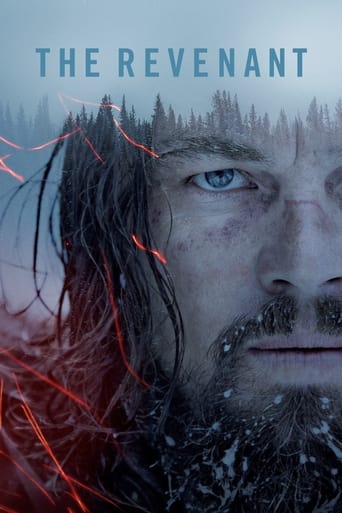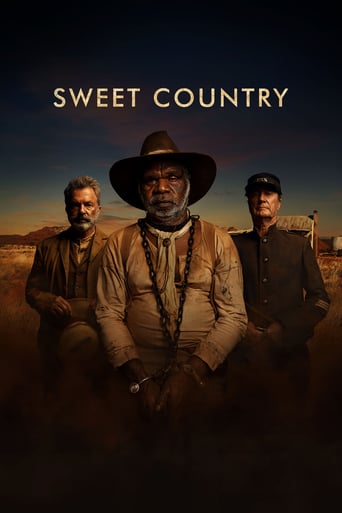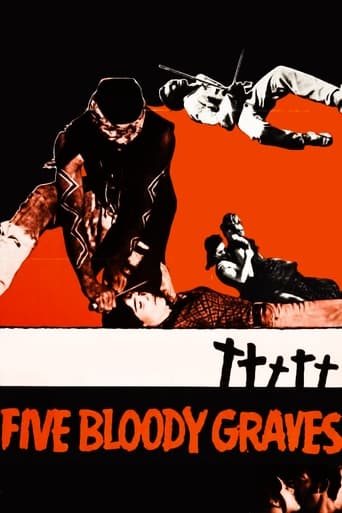Sergeant Rutledge (1960)
Respected black cavalry Sergeant Brax Rutledge stands court-martial for raping and killing a white woman and murdering her father, his superior officer.
Watch Trailer
Cast


Similar titles
Reviews
period courtroom drama that attempts to humanize former slaves by endowing them with the extraordinary kindness of saints and/or morons, thus maintaining a fiercely racist viewpoint. the apaches are, naturally, beasts. and no, it is not "fine because it was 1960." for the rest, while the subject matter is sharp, the execution is filled with stereotypes, reversed stereotypes, and sentimentalism of all sorts.
Sergeant Rutledge. Is simply a movie ahead of it's time. MAde before to kill a mockingbird and In the heat of the night and Long before Guess who's coming to dinner. The story is a court martial of a respected soldier who is on trial for his life. He is accused of raping and murdering a girl. Typical story or court room drama. Except in this case the girl was white. And the accuser black. Those points are hammered home by John Ford as the court must ask itself is he being accused because of his being in the wrong place at the wrong time ? Or is it the colour of his skin? not to mention Rutledge had escaped once. but came back to warn his outpost about a Indian attack. An attack in which Rutledge not only risks his life to save his fellow soldiers. but where he wrestles with himself to stay or run. And stay he does. And he goes on trial in a pretty interesting court martial. This movie reminded me of the Searchers in a lot of ways. The light hearted atmosphere. And the seriousness that lurks under neath it. Woody Strode carries himself well. His Rutledge is a soldier and he lives and dies by the book. The movie is filmed quite beautifully and the draw backs are few. The romance storyline between hunter and the female lead is dreadful. It feels tacked on. The movie didn't need it. But even so it drags the movie in the scenes where the two leads are playing romance then with Dealing with Woody Strode's Rutledge. The only time the movie comes alive is when Rutledge is on the screen. But even so the movie doesn't feel dated. A tribute to John Ford who made this movie feel timeless. Two thumbs up for this movie.
Unlike most of Director John Ford's Westerns that feature much action, "Sergeant Rutledge" is mainly a courtroom drama told mainly in flashback. The time is 1881. The gist of the story is a black Ninth US Cavalry sergeant accused in the rape and murder of a teen-aged white girl Lucy Dabney (Toby Michaels) and also the murder of her father. Woody Strode ably plays the role of the sergeant, Braxton Rutledge. When he tells his enlisted men about "white woman's business" we know he is talking about serious trouble. Rutledge's capable courtroom defender is Lt. Tom Cantrell (Jeffrey Hunter), whose job is to piece together the facts, despite constant badgering by the prosecutor, Captain Shattuck. In a highly emotional setting, Shattuck likes to make racial innuendos although he is dealing with a military court of savvy men. Complicating matters is an Apache Mescalero outbreak of hostilities. Later in the film there are two interesting engagements between the Buffalo soldiers and the Apaches. The movie is fine enough despite two drawbacks: (1) It is too long and (2) the weak trial resolution. The confession by the real murderer is over-dramatic and contrived. It is doubtful that anyone in US court has made such a strange confession, especially when the evidence was hardly circumstantial ("I had to have her!"). Perhaps the real killer had a change of conscience. But, despite its drawbacks, the film was groundbreaking in its day and still is enjoyable today. On-location shooting in Monument Valley (and Mexican Hat: note the hat rock formation in the background shots) is always spectacular. A nice shot is that of the troopers standing firm in line of battle with the Indians. "Captain Buffalo" is a moving western song about the soldiers. Lt. Cantrell explains to Mary Beecher (Constance Towers) the origin of the name "Buffalo soldiers." To stay warm in winter the black troops wore coats and hats made of Buffalo hides. As they thus appeared like buffaloes the Indians dubbed them "Buffalo soldiers." There is another origin (not mentioned in the movie): The name relates to African hair that looked to the Indians like the shaggy buffalo coat in winter. In the feature, quite a few Buffalo soldiers have speaking parts, and future Olympic gold medal winner Rafer Johnson plays an army corporal. Sgt. Skidmore (Juano Hernandez) has a funny line, "Trouble come double, sir." Rutledge has the best line in the movie when he tells Mary Beecher: "Lady, you don't know how hard I'm trying to stay alive."Billie Burke (Glenda the good witch, 1939) was at 76 years, as usual too old for her part as Cornelia, the wife of Col. Otis Wingate (53 year-old Willis Bouchey). Here she shows her real age as she is fluttered and genuinely shocked when a teen-aged girl rides her horse astride and not side-saddle (with legs close together), as some ladies did back in olden times. She is also none too pleased when white women speak to black men. She certainly played the giddy one. Postscript: Obviously after the period of the movie 65 years had to pass before four major events of the civil rights movement occurred: (1) integration of interstate commerce in 1946, (2) desegregation of the armed forces by Pres. Truman, 1948, (3) Brown vs. Topeka Board of education in 1954, and (4) the Montgomery bus strike (1955).
There are two ways too look at this film. The first way too look at it is as a painting done by an artist of the Western Genre. In this sense, John Ford's film is just as good here as any film he did. The Monument Valley in Utah is used much the same here as it is in every film Ford featured it in.Fords work with this cast is a form of the artist too. Every person in this cast shines from Jeffrey Hunter's lead role throughout. Ford proves here he doesn't need John Wayne, James Stewart, or any of the biggest A List stars of 1960 to make a terrific film. This film is done with his style & flair. It has possibly the best performances on film of the entire cast. The classic courtroom & flash back sequences work as well as ever too.The second way to look at this is for political messages. I think it is a mistake too look at this film for that. Granted this is the largest black cast ever assembled for a Ford film, but that does not really mean he was trying to make a civil rights message here. In fact from what I see, the history here is fatally flawed as the period after the Civil War this is set in would not contain these people.Racism was not addressed immediately after the Civil War period. We wish (& maybe Ford did too) now that issue had been (Monday Morning Quarterbacks in 1960). True History indicates otherwise. What this script does is take some 1960 people who were coming around to the idea that racism is wrong, & places them after the Civil War. The result in this film is mixed on how effective that really is.Entertainment is something this film does provide well. Ford the artist does shine through here which makes this a much better than average film in it's era. I did read a review on here that takes offense too the women being sent out of the courtroom during certain testimony in the trial. The truth in that era is that could have happened. You have to remember that women did not get the right to vote until years after the time this movie is set in.Don't look at this movie as true history though. It is revisionist history. What I enjoy with this film is artistry of a great director taking an excellent cast & painting a great picture on a film canvas. This film does that very well.

